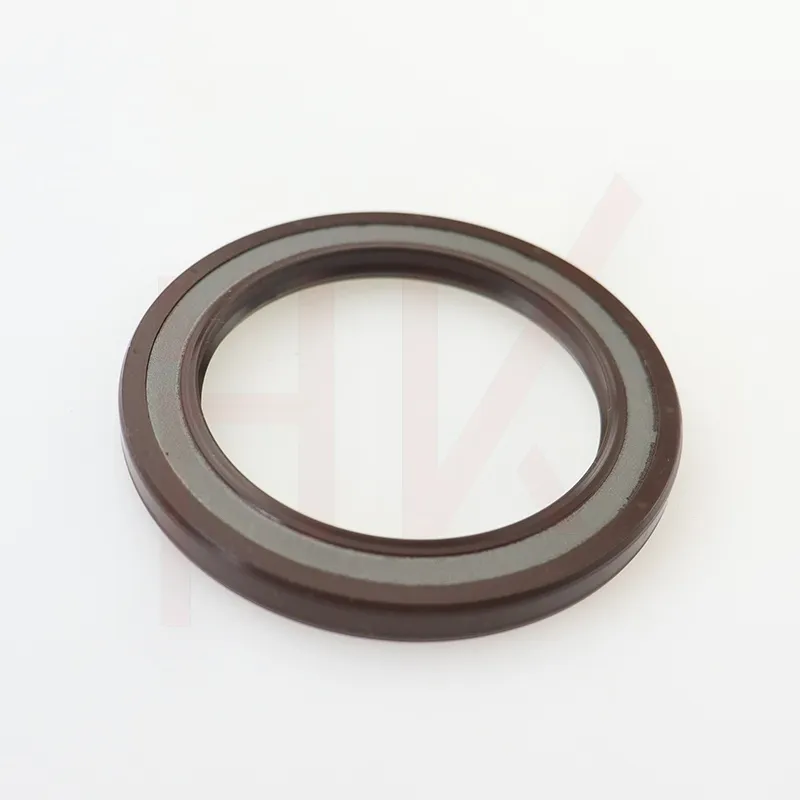Nov . 26, 2024 19:31 Back to list
Exploring the Role of Oil Hub Seals in Energy Distribution Systems
The Importance of Oil Hub Seals in the Energy Sector
In the ever-evolving landscape of the energy sector, the role of oil hub seals is pivotal. These seemingly minor components are vital for ensuring the efficient operation of various machinery and equipment used in oil extraction, transportation, and refining processes. This article delves into the significance of oil hub seals, their functions, design considerations, and the latest advancements in this crucial area.
What are Oil Hub Seals?
Oil hub seals, often referred to as oil seals or rotary shaft seals, are mechanical components designed to retain lubricants and prevent the leakage of oil and other fluids. Located in bearing assemblies and rotating shafts, these seals are essential for maintaining the integrity of machinery that operates under high pressure and fluctuating temperatures. By preventing contamination from external elements such as dirt and water, oil hub seals ensure the longevity and reliability of equipment.
Functions and Importance
The primary function of oil hub seals is to create a barrier that keeps lubricants in and contaminants out. This sealing action plays a critical role in various applications, including
1. Preventing Fluid Leakage One of the most significant advantages of oil hub seals is their ability to prevent leakage of lubricants. This conservation of oil is vital for ensuring efficient operation and reducing operational costs associated with frequent oil changes.
2. Enhancing Equipment Longevity By keeping contaminants out, oil hub seals minimize wear and tear on moving parts. This significantly extends the lifespan of machines and reduces the likelihood of unexpected breakdowns, which can lead to costly downtime.
3. Improving Safety In industries where high-pressure systems are commonplace, the use of oil hub seals enhances safety by preventing dangerous leaks. A compromised seal can lead to catastrophic failures, putting both workers and machinery at risk.
oil hub seal

4. Boosting Operational Efficiency A well-functioning oil hub seal contributes to the overall efficiency of machinery. By reducing friction and ensuring proper lubrication, seals play a crucial role in optimizing performance and energy consumption.
Design and Materials
The design of oil hub seals is a crucial factor in their performance. They are typically made from a variety of materials including rubber, silicone, and thermoplastics, each chosen for its durability, flexibility, and resistance to various environmental factors. The choice of material affects the seal’s ability to withstand extreme temperatures and pressures, making it essential to select the right material for specific applications.
Seals can also be designed as single-lip or double-lip types depending on the operational requirements. Single-lip seals are sufficient for many applications, but double-lip seals provide an additional layer of protection, especially in environments where there is a higher likelihood of contamination.
Innovations and Advances
As technology progresses, the design and materials used in oil hub seals are continually evolving. Innovations such as advanced polymer compounds and composite materials have enhanced the performance and durability of seals. Furthermore, the integration of smart technologies is on the rise. Smart seals equipped with sensors can monitor the health of the seal in real-time, providing valuable data that can be used to predict maintenance needs and avoid catastrophic failures.
Furthermore, the push for sustainable practices in the energy sector is leading to the development of eco-friendly seals that minimize environmental risks associated with oil leakage. These advancements demonstrate a growing commitment to sustainability while ensuring operational efficiency.
Conclusion
Oil hub seals, though often overlooked, are a cornerstone of the energy sector. Their ability to prevent leaks, enhance machinery longevity, and improve safety makes them indispensable in oil extraction, transportation, and refining processes. As technology continues to advance, the design and functionality of oil hub seals will likely evolve, further solidifying their importance in an industry that continually strives for efficiency and sustainability. Understanding and investing in high-quality oil hub seals is not just a smart choice but a necessary step towards optimizing operations and ensuring safety in the energy landscape.
-
TCN Oil Seal Metal Ring Reinforcement for Heavy Machinery
NewsJul.25,2025
-
Rotary Lip Seal Spring-Loaded Design for High-Speed Applications
NewsJul.25,2025
-
Hydraulic Cylinder Seals Polyurethane Material for High-Impact Jobs
NewsJul.25,2025
-
High Pressure Oil Seal Polyurethane Coating Wear Resistance
NewsJul.25,2025
-
Dust Proof Seal Double Lip Design for Construction Equipment
NewsJul.25,2025
-
Hub Seal Polyurethane Wear Resistance in Agricultural Vehicles
NewsJul.25,2025
-
The Trans-formative Journey of Wheel Hub Oil Seals
NewsJun.06,2025
Products categories
















